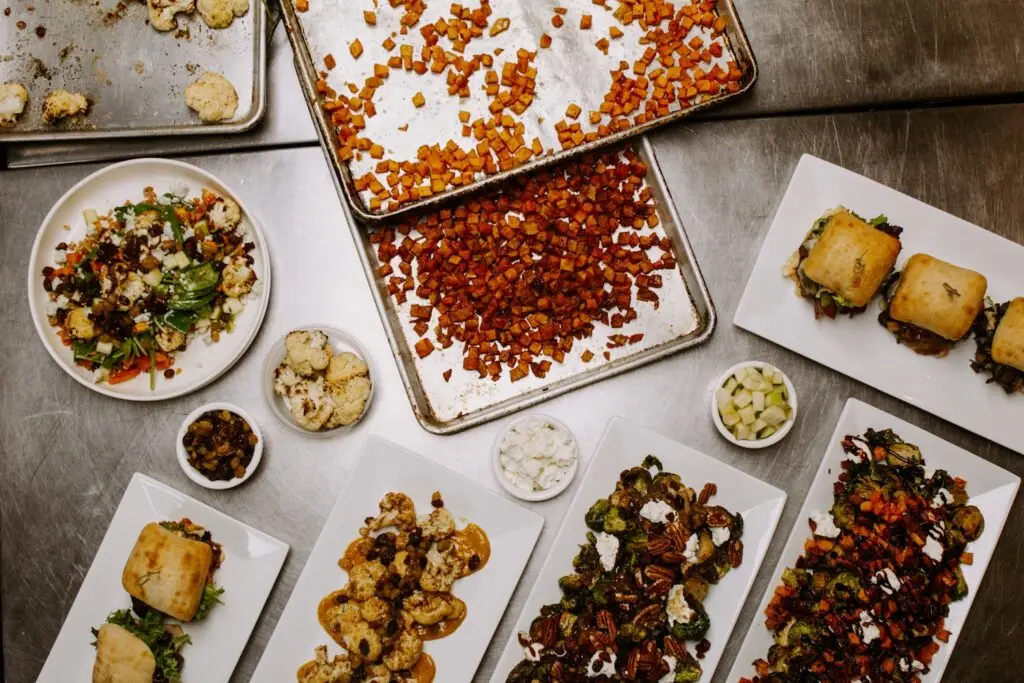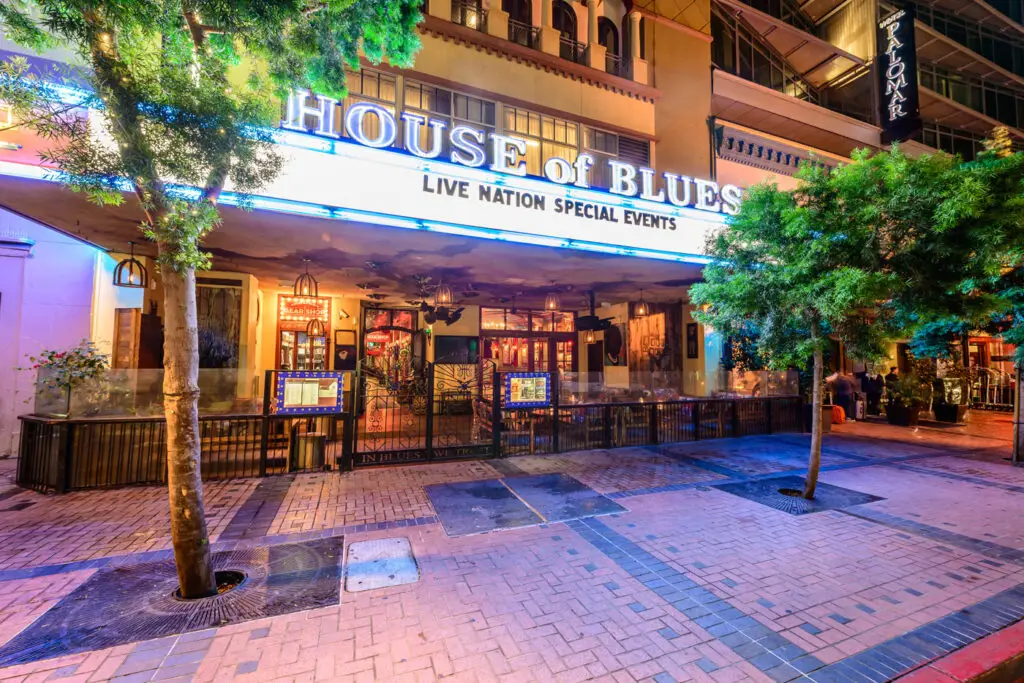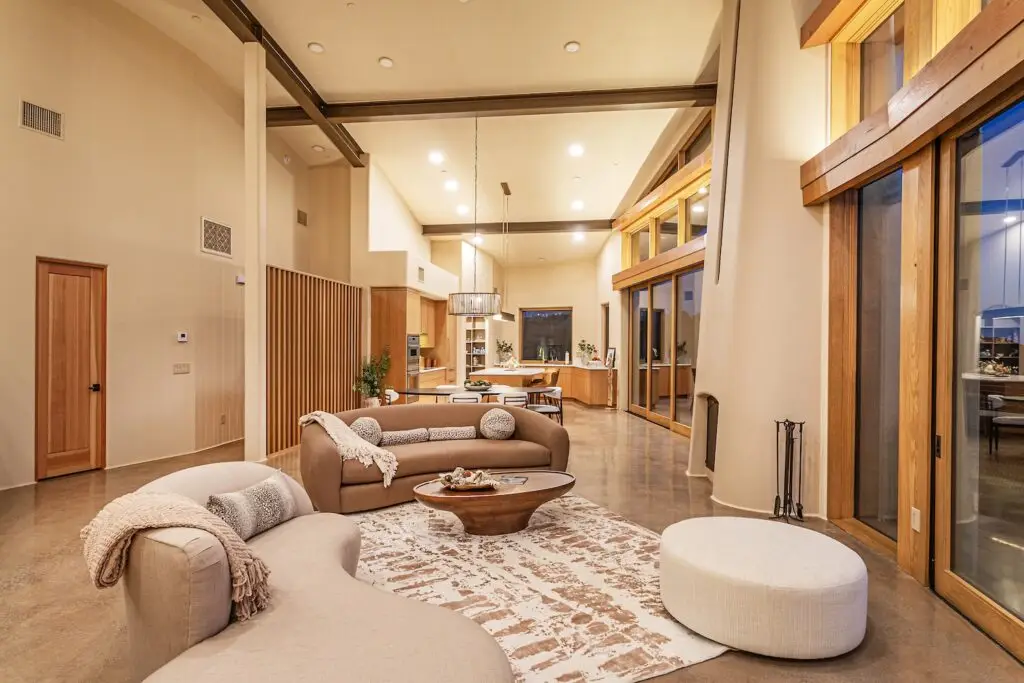These days, a restaurant that manages to last 10 years should be investigated for witchcraft. People are ordering delivery instead of going out to eat. The industry operates on tiny margins. The state’s refusal to count tips as wages while raising minimum wage is not helping those margins.
But it’s not all doom and gloom. A restaurant with a fair lease, good food, a few cozy corners to spend an hour in, and—probably most importantly—a strong business operator, can thrive. It was 2010 when The Smoking Goat opened in a tiny storefront in North Park. Fred Piehl wasn’t a big-name chef. He’d spent a little time under top chef Jason Knibb at Nine-Ten, but not a considerable amount.
Still, the Goat was cute as hell, and his duck fat fries and California-French techniques hit the right nerve. That part of North Park at University and Upas needed a cozy neighborhood bistro. His wife-partner Tammy Piehl worked a corporate job to pay the Goat’s bills. Neither of them took a paycheck for the first two years. When minimum wage went up a few years back, the spike in cost nearly put ‘em under.
But Fred and Tammy managed to make the adjustments, right the ship, and this month the Goat celebrates a decade (and their sister restaurant next door, appropriately named One Door North, is alive and well).
I asked the couple for the major lessons they’ve learned, good and bad. Real stuff, not feelgood platitudes (though those are deserved, too).
1. Do It All
Fred: “Don’t open a restaurant because you love to cook. You won’t just be cooking. You need to enjoy plumbing, accounting, paperwork, cleaning, social media, and human resources, too, and all at the same time.”
2. Expect the Unexpected
Tammy: “Funny things happen in a restaurant and pretty much anything can happen. We once had to pay a super large plumbing bill because someone flushed a dish towel down the toilet. We had a fraud phone call on a Friday night before service telling us our electricity would be shut off due to not paying the bill. We were trying out a new cook and he had a seizure while on the line. We had a guest try to smuggle out our large ceramic pig in her purse. These are just the tip of the iceberg. It keeps life interesting. We have no idea why, but this is true. You have to prepare for the weird stuff when you own a restaurant, because it will definitely happen to you.”
3. Keep it Legal
Tammy: “There are a lot of legalities in this industry. We are constantly working to stay up to date with the law. Be transparent with your employees and be sure you create policies so everyone understands the reasons behind them and the labor laws put in place. It’s important to follow every single law so you don’t get into a position where either your employees don’t trust you or being taken advantage. I’m very adamant our people take breaks even when they don’t want to. If they don’t take a break, you need to pay them an extra hour.”
4. Adapt to Survive
Fred and Tammy: “We’ve had to figure out how to cover increased minimum wages. This is a huge challenge in our industry. When The Smoking Goat opened in 2010, minimum wage was $8 an hour. Now it’s $13 an hour. We have reduced labor hours by increasing efficiency in every step of the process possible. As the minimum wage continues to increase every year, we are evaluating technologies to reduce labor hours further. We will do all that we can to avoid surcharges and still provide the highest quality ingredients and service, but it would be so much more manageable if even a small portion of tips counted towards the minimum wage requirement for servers.”
5. Landlords Can Be Tough
Tammy: “No one tells you when you open a restaurant that you’ll be negotiating a lease with the same person for a very long time (hopefully). And it’s a hard thing to do. Very few restauranteurs own their buildings, so you’ve got to deal with a landlord who might not understand your business. Yes, we negotiate often in the restaurant business, but the negotiations surrounding the actual building have been some of our toughest.”
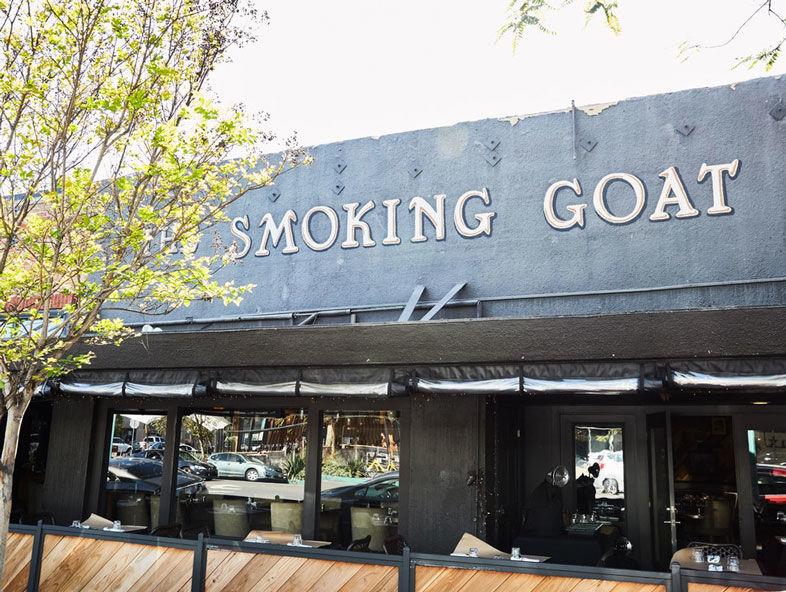
A Decade of Restaurant Lessons at The Smoking Goat
6. Hold on to Those Who Care
Fred and Tammy: “If you find an employee that cares as much as you do, hold on to them. We are grateful to have collected many over the years. You need the people who want to do the work, not the ones that want to delegate the work. Believe it or not, that took us a while to realize. We are extremely proud of the staff we have at both of our restaurants. Alfredo Sanchez started with us day one as our busser and food runner. Food runners are the most important positions. They have an eye on everything. They can give you great feedback on your cooks and servers and customers. If they really care about the business are an amazing asset. We call Alfredo our steward, who helps us manage everyone else.”
7. Sourcing is Special
Fred: “Finding and maintaining relationships with purveyors. A restaurant is nothing without its ingredients. Guests may think that we can get the same ingredients all the time but it’s not always the case. It’s a constant dialogue with farmers, ranchers and winemakers to make sure they’ll have enough to provide us and that the quality is consistent year over year.”
8. Start Small
Fred: “Some may disagree, but for us, it was the right thing to start small and have another source of income. It gives you the time to learn without the stress of making a living. Some weeks, we did nothing but take Tammy’s corporate job paycheck to cover the restaurant bills. I told her it was her investment into our future.”
9. Technology is Important
Tammy: “Incorporating technology into the dining experience is the future. We have a stellar employee who did not want to take orders and have people pay tableside with a handheld device. He is an amazing server with an impeccable style of service, and he felt this detracted from the experience. We knew it added efficiency and reduced payment errors, which is very important for our guests. We made it a requirement for our staff and after six months, he stopped to thank me for pushing him to make the change. He sees its value.”
10. An Impression Can Truly Last
Tammy: “I was checking a reference of a new employee recently and the gentleman currently lives in Colorado. After our business discussion, he told me that he had lived in San Diego ten years ago and was a frequent OGer (Original Goater, a term we affectionately use for our guests that dined with us when we were teeny tiny). He said that he has had our leather coaster with the imprinted goat on his nightstand for the past ten years and visits us whenever he visits San Diego.”
The Smoking Goat, 3408 30th Street, North Park.
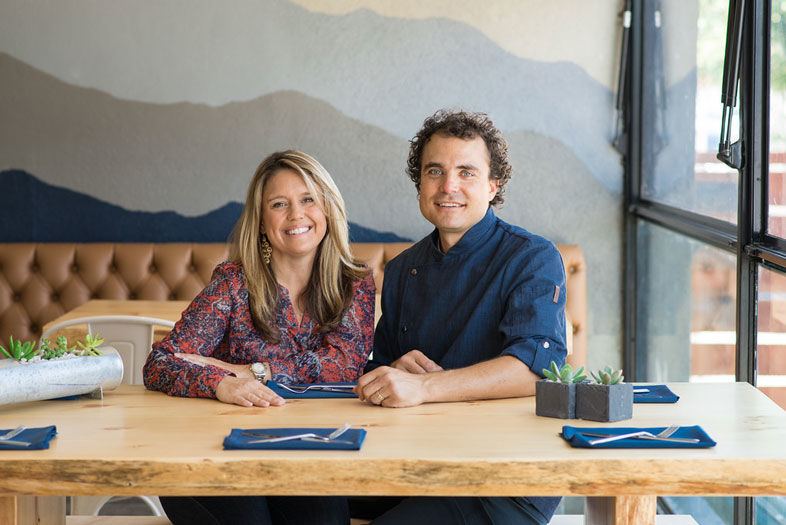
PARTNER CONTENT
The Smoking Goat’s owners Tammy and Fred Piehl

